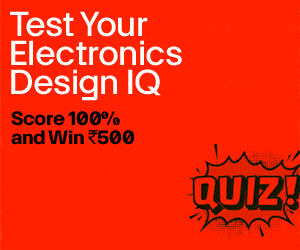AMD Xilinx believes that its cost-optimised FPGA family with wide-ranging resources could fuel growth within the tech industry across India.
AMD Xilinx has officially launched the Spartan-7 series of Field-Programmable Gate Arrays (FPGAs), which was announced last year. The company said that the Spartan-7 series comes with the increasing demand for customisable, high-performance, flexible computing hardware.
The Spartan-7 FPGAs are built on the advanced 7nm process technology, ensuring optimal performance, power efficiency, and scalability for meeting the demands of modern computing workloads. AMD said that the Spartan Ultra Scale Plus devices have the industry’s highest I/O to logic cell ratio of FPGAs built on 28nm and below process technology, with up to 572 I/Os and voltage support up to 3.3V. The chip’s 16nm fabric and packaging array, starting as small as 10x10mm, provide high I/O density in a compact design.
The FPGAs also come with security features, such as Post-Quantum Cryptography with NIST-approved algorithms for IP protection, PPK/SPK key support, preventing tampering, and differential power analysis to counter side-channel attacks, safeguarding critical data and applications.
The sampling and evaluation kits are expected to be available in the first half of 2025, while the documentation is now available. The support for AMD Vivado Design Suite tool will be made available in the fourth quarter of 2024.
Senior manager, AMD, Rob Bauer stressed that the growth in connected edge devices is expected to more than double by 2028, driving the need for next-generation FPGAs.
“The growth in demand for high-performance connected edge devices will be led by increasing I/O due to more sensors, high-speed ADCs, cameras in edge devices, security for devices collecting vast amounts of user data, and improving workforce efficiency with a predicted 30% shortage in design engineering talent. Another driving factor is customers’ need for a long life cycle. We’ve introduced the sixth-generation AMD Spartan Ultra Scale Plus FPGAs to address these trends,” he elaborated.
Bauer believes that the launch of the Spartan-7 FPGAs has significant implications for various industries, including data centres, telecommunications, AI applications and edge computing.
As industries continue to demand more adaptable and efficient solutions, the Spartan-7 series positions itself as a frontrunner in the FPGA market. Elaboarting on what this means for the India market, Bauer said, “The opportunity for innovation in a cost-optimised space is around the level of integration you can provide, how small you can package it, and what the cost looks like for these devices. Having a cost-optimised FPGA family that has a wide range of resources to support many different applications could really help fuel growth within the tech industry across India.”







